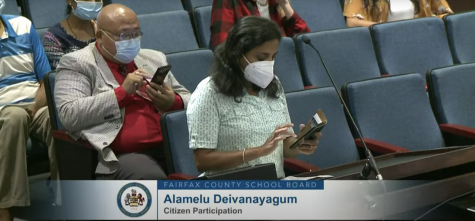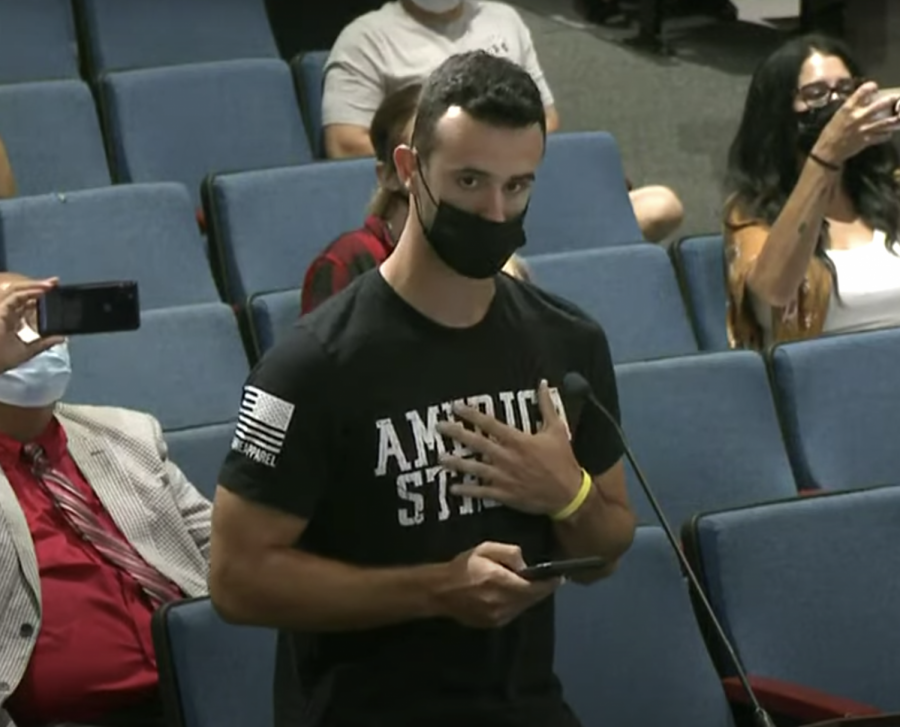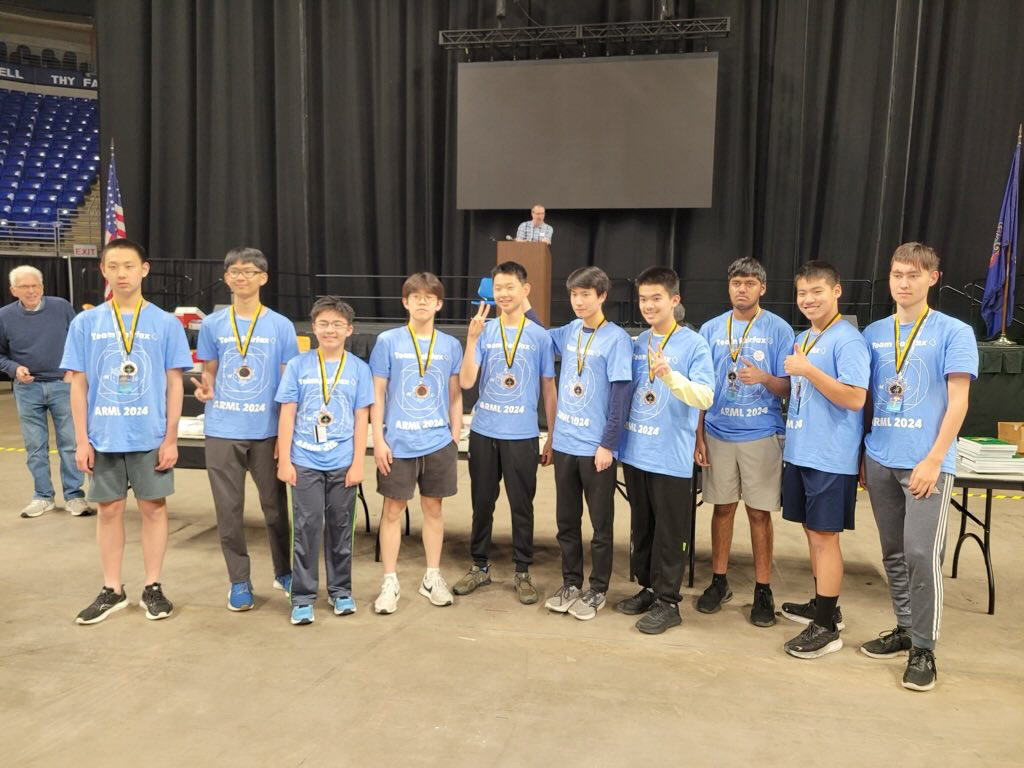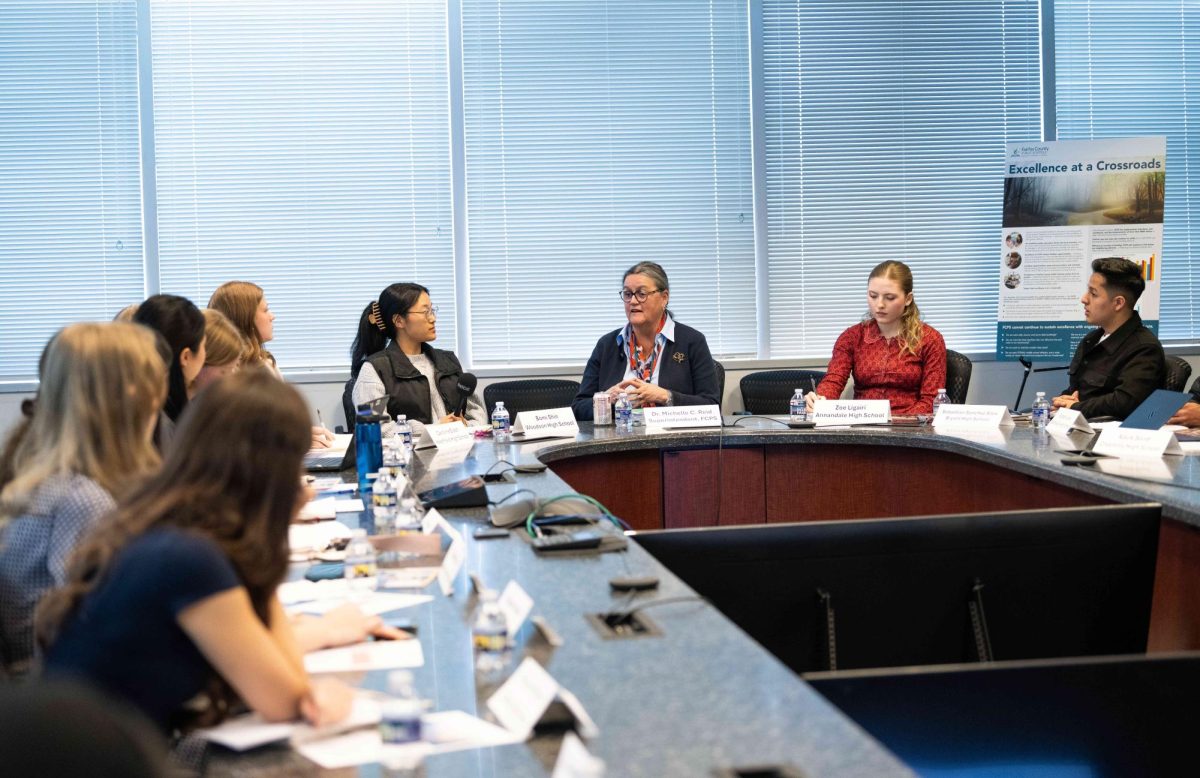On Thursday, Sept 9, the Fairfax County School Board convened to discuss their approach to COVID, vaccines, and in-person learning. The meeting spotlighted community members, offering them the chance to air their grievances and make any requests.
Virtual School
After a tumultuous few weeks of in-person learning, parents had much to say, and the discourse primarily revolved around implementing a virtual school option.
“I request the board to kindly open up virtual learning along with in-person learning for elementary school kids,” FCPS parent Sreekumar Palanichamy said.
Similar sentiments were echoed throughout the night, with many parents sharing their concerns about keeping their unvaccinated elementary-age children in school.
“All of the indicators in Fairfax County are currently going [in] the upward direction,” parent and CDC official Amit Madan said. “Hospitalizations, cases, deaths are all increasing. Experts and doctors are again and again emphasizing the importance of prevention.”
Madan, like most parents at the meeting, cited recent statistics from the CDC and other prominent organizations.
“The new weekly COVID-19 cases in children are 205,000. Today, the percent increase in children is 27 percent of the total COVID cases today,” Madan said. “From June to late August, [there was] a 10 percent increase in hospitalizations for children.”
Other parents opted for statistics specific to the Fairfax County region, drawing parallels between the COVID situation last year and the current state of affairs.
“There have been more than 500 cases within FCPS alone since school started this year, whereas the total number of cases the whole of last year was just 1266,” Palanichamy said. “So we have managed to reach almost 30 percent of that number in less than just three weeks of [in-person] school.”
Community representatives also expressed concern about social distancing in tightly packed schools, particularly those with a history of overcrowding.
“We noticed that maintaining social distancing inside the school buses and classrooms [is] really challenging,” FCPS parent Lavanya Madhavan said. “Classrooms are challenged when operating at full strength, [and] social distancing is practically impossible.”

As the night went on, parents reiterated similar points. They fervently discussed the emerging Delta and Mu variants, citing them as further reason for a virtual school option.
“With the new millions of COVID that are mutating pretty much on a monthly basis, whether that is the Delta or Mu or Lambda, the population who is not eligible to get vaccinated is the most vulnerable,” said Srinivas Kothuri, FCPS parent and NIH employee.
Most of the speakers in attendance agreed that keeping kids in school when most are ineligible to receive a COVID vaccine is dangerous. Some even paralleled the situation to the working world, where adults who are unvaccinated are not allowed to return in-person. In what was perhaps the most emotional part of the night, however, a mother urged the board to offer children in vulnerable households a virtual schooling option.
“I have an elementary-aged kid who is not eligible for a vaccine yet, and her younger sibling is not eligible as well,” parent Rajakala Paulthangam said. “However, he is at high risk for COVID, and now we are forced to choose between the education of one kid versus the life of the other.”
Currently, children are only exempt from in-person schooling if they have recorded medical conditions, but not necessarily if they live with someone in a vulnerable medical state. In an emotional testimony, Paulthangam pleaded with the board to offer families in this position the option to enroll their kids in virtual school.
“I’m aware of families who are in the same boat as mine – families of elementary school kids with family members who are cancer survivors, with siblings who are still fighting for their lives every day,” Paulthangam said. “Telling these families to figure it out for themselves does not seem to be a fair solution.”
Despite their complaints, many parents praised FCPS for their resilience and handling of the pandemic. Ultimately, however, they urged the county to respond to the increasingly harrowing statistics.
“We value the measures taken by FCPS, like masking and social distancing. We also understand the importance of in person schooling for children to learn and grow,” Madhavan said. “But [we feel that] safeguarding our kids during this pandemic [is] more important.”
Vaccine Mandates
In line with the COVID-related discourse of the night, a few community members spoke up about vaccine requirements. April Solinsky, a teacher in Fairfax County, expressed her discontent at the recent county-wide vaccine mandate.
“According to the Penn Medicine Center for Evidence-Based Practice, in Dec 2020, mRNA vaccines have had few or no long term studies, and they have many adverse reactions,” Solinsky said. “I would like to note that the FDA has only approved the Pfizer vaccine for ages 16 and older.”
Solinsky argued for freedom of choice, a sentiment that was echoed later on in the meeting by a former high school athlete.
“You’re asking students who may not wish to receive the vaccine, to either sacrifice their beliefs or sacrifice their well being,” recent high school graduate Jason Rotondi said.
Rotondi passionately argued for freedom of choice in the matter and even suggested regular antibody tests as a potential alternative to required vaccinations.
“If the antibodies do just about the [same thing as the] vaccine with very similar goals, how come that’s not even an option?” Rotondi asked the board.
Though the vaccine mandate was not a central topic of discussion at the meeting, it still remains a point of contention among community members. Earlier in the night, many parents suggested that vaccine mandates were necessary in Fairfax County.
“Community transmission is so high when elementary students are not vaccinated. Teachers are also not fully vaccinated, which public colleges such as [George Mason University] have required,” community representative Alamelu Deivanayagum said. “We don’t want to choose between [our kids’] health and education.”
Still, others maintained that mandating vaccines is fundamentally wrong.
“When we mandate vaccines, parents are given pressure in lieu of informed consent,” Solinsky said. “I’d like us to return to our core values in this county: family empowerment, student-centered decision making and responsible citizenship. Forced vaccination of students, especially those under the age of 16, violates all three.”









